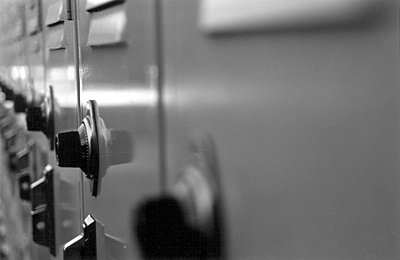All Nonfiction
- Bullying
- Books
- Academic
- Author Interviews
- Celebrity interviews
- College Articles
- College Essays
- Educator of the Year
- Heroes
- Interviews
- Memoir
- Personal Experience
- Sports
- Travel & Culture
All Opinions
- Bullying
- Current Events / Politics
- Discrimination
- Drugs / Alcohol / Smoking
- Entertainment / Celebrities
- Environment
- Love / Relationships
- Movies / Music / TV
- Pop Culture / Trends
- School / College
- Social Issues / Civics
- Spirituality / Religion
- Sports / Hobbies
All Hot Topics
- Bullying
- Community Service
- Environment
- Health
- Letters to the Editor
- Pride & Prejudice
- What Matters
- Back
Summer Guide
- Program Links
- Program Reviews
- Back
College Guide
- College Links
- College Reviews
- College Essays
- College Articles
- Back
Ingenious Victims
Few people could argue against the improvements that technology has brought. We have instant contact with family and friends. We have global communication that benefits people and businesses. It would be difficult to find someone who has not been affected by such technology. But should we let it completely change our lifestyles? One place we shouldn’t let it take completely over is in our classrooms.
Technology in a classroom could have a negative effect on behavior. Technological devices may cause students to be more inclined to cheat. For example, students could use texting to get answers, use the internet to solve problems they’re suppose to solve on their own, or plagiarize other peoples work by using Facebook, blogging, or other websites. These devices may also affect communication skills negatively. Texting is a prime example. Texting answers to the teacher encourages students to use text lingo in class. Because they’re use to this lingo, it appears in their formal papers. It also appears in verbal communication. For instance, when a teacher asked an EHS student where she needed to be, she responded, “IDK.” Finally, it may cause students to goof off even more. With technology at their self propelled fingertips, they could easily chat without using paper or bully without confronting anyone.
Not only would there be behavior problems, another downside would be expense. First is the money the schools would have to spend to get such technology in each classroom. Once it’s in the classroom, it has to be fixed if it breaks, costing additional money. Next, there are families to consider. Some families can’t afford internet, phones, or other technology. But such classroom use may influence them to obtain these, even though they can’t afford them.
Ultimately, technology in the classroom could create an atmosphere of isolation. Each student would be at his/her own screen, interacting with a keyboard and a mouse, not with a human. Because verbal communication would no longer be essential in the classroom, students would be in their own cubicle, whether real or imagined. Fingers rather than voices would send greetings, or ask questions. Like the students, teachers would also be behind a screen, not in front of the class lecturing. Teachable moments that would benefit the entire class would probably be lost by this type of one to one electronic communication. Furthermore, teacher’s passion can’t be sent via technology.
It would be foolish not to acknowledge technology’s benefits. However, it would be equally foolish to overload the classrooms with technology. We need human contact, not only with teachers, but also with classmates. If we become too dependent on technology, these human interactions could become lost, making us, “victims to our own ingenuity,” as my grandfather often says.

Similar Articles
JOIN THE DISCUSSION
This article has 0 comments.
